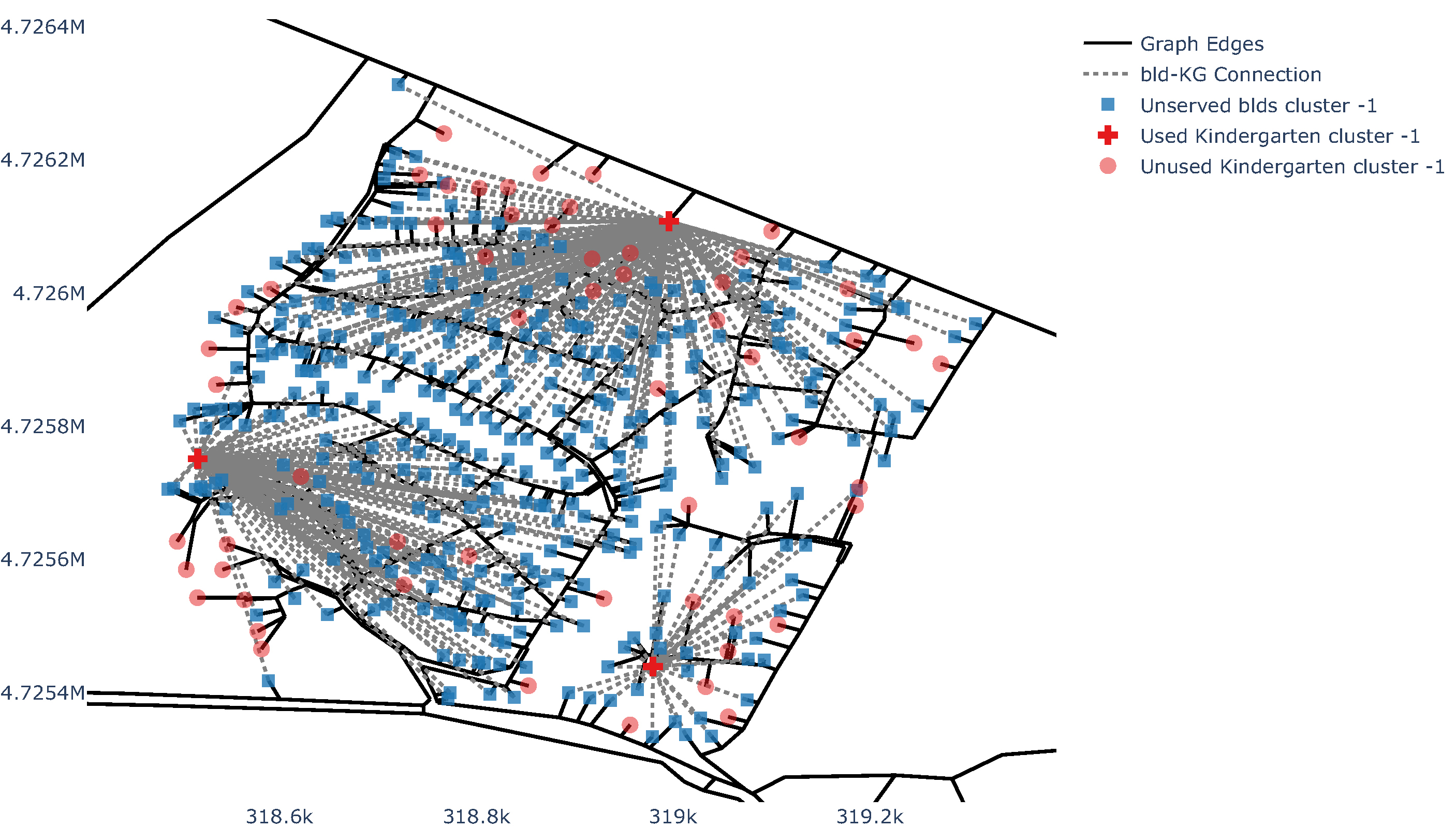
Location-Allocation of Social Amenities
Urban planning plays a crucial role in shaping the livability and functionality of cities, with social amenities serving as key determinants of residents' well-being. Access to essential services such as schools, healthcare facilities, and recreational spaces influences quality of life, economic opportunities, and social equity. Among these, kindergartens are particularly significant as they provide early childhood education and facilitate the participation of the parents' workforce. However, ensuring equitable access to kindergartens poses a major challenge for urban planners, requiring careful consideration of spatial distribution, demographic trends, and infrastructure constraints. Effective planning of these facilities is essential to foster inclusive and sustainable urban environments.
Optimizing kindergarten allocation is a complex problem that requires advanced computational techniques to balance accessibility, capacity, and efficiency. Traditional approaches often struggle with the combinatorial nature of the problem, where multiple factors must be considered simultaneously, such as population density, travel distance, and available infrastructure. Modern urban planning increasingly relies on data-driven methodologies to improve decision-making and resource allocation. In this context, CP provides a powerful framework for solving large-scale spatial optimization problems. Using CP, optimal kindergarten placements can be identified, minimizing inequality in access while ensuring efficient use of resources.
The kindergarten allocation problem is a critical optimization challenge in Sofia, Bulgaria. The objective is to determine the optimal locations to build new kindergartens from a predefined set of possible sites while efficiently distributing children to these kindergartens. The allocation must consider constraints such as capacity limits, proximity, and fairness in distribution. This problem is particularly relevant in densely populated areas where the demand for kindergarten placements exceeds the available slots, requiring an optimal location-allocation strategy.
In this study, a novel approach is proposed to solve the kindergarten location-allocation problem using CP. The problem is formalized based on MiniZinc, a high-level constraint modelling language, and leverages the power of the Gecode and Chuffed solvers to find optimal solutions. To enhance computational efficiency, Python's multiprocessing module is employed, enabling parallelized execution where each process independently explores solutions for different numbers of required kindergartens. This parallelization significantly accelerates the solution process, making it feasible to handle larger problem instances. The proposed approach provides a scalable and efficient solution to the allocation problem, offering a practical framework that can be adapted to various real-world scenarios. Through experimental evaluation, its effectiveness is evaluated in terms of solution quality and computational performance.

